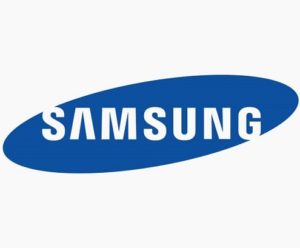Ad Spend to Rise, Say Zenith; Samsung's Profits Rise Amid Chip Demand
by Grace Dillon on 6th Aug 2021 in News


In this weekly segment, ExchangeWire sums up key industry updates in media, marketing, and commerce, from around the globe. In this edition: Zenith’s latest Advertising Expenditure Forecasts report finds that ad spend is set to rise; high demand for memory chips send Samsung’s profits up; Kuaishou announce they will close down their Zynn app; and Google are accused of price-fixing with Facebook again.
Ad spend to rise from pre-pandemic high, say Zenith
High levels of demand for performance-led ecommerce advertising and brand advertising through online video will send global ad spend up by 11.2% this year. That’s according to the latest Advertising Expenditure Forecasts report published by Zenith last week, which states that worldwide advertising expenditure will rise by USD $40bn (£28.7bn) from 2019 to USD $669bn (£480.8bn) in 2021.
The shift to ecommerce driven by the pandemic sent social media advertising and paid search up as more brands partnered with online retailers and formed their own direct-to-consumer (DTC) operations. The report predicts that this year social media advertising will grow 25% to USD $137bn (£98.4bn), whilst paid search will increase 19% to USD $135bn (£97bn).
Advertising expenditure will continue to grow strong in the coming years, rising 6.9% in 2022 and 5.6% in 2023, the report estimates. Furthermore, online video will become the fastest-growing digital channel in 2021 after growing 26% to USD $63bn (£45.3bn), and digital advertising will grow by 19% to take a 58% share of the market. Ad spend on static display, meanwhile, is expected to decline by 15%, and spend on print will continue to diminish.
Samsung profits soar amid high demand for memory chips
 Technology manufacturer Samsung have seen their profits surge as demand for memory chips remains high. The smartphone heavyweight reported second-quarter net profit equivalent to USD $8.37bn (£6.02bn), a 73% increase from the same period in 2020, as well as a 20% growth in revenue.
Technology manufacturer Samsung have seen their profits surge as demand for memory chips remains high. The smartphone heavyweight reported second-quarter net profit equivalent to USD $8.37bn (£6.02bn), a 73% increase from the same period in 2020, as well as a 20% growth in revenue.
On top of being the world’s leading smartphone maker, Samsung are also the largest manufacturer of memory chips, and supply components to other major tech firms, such as Apple and Sony. With increased consumer demand for personal electronics and data servers triggered by COVID-19 lockdown measures came greater demand for the memory chips these devices require.
As a result, Samsung saw their chip division’s Q2 operating profit grow 28% and revenue increase by 25%. The South Korea-based firm now say they expect demand for memory to remain strong for the rest of the year, supported by the launches of new smartphones, the expansion of 5G, and continued demand for PCs and servers. The company also plan to begin mass-producing a new kind of memory chip, based on extreme ultraviolet lithography, in the latter half of this year, per The Wall Street Journal.
Kuaisho shutter Zynn app
 Chinese tech company Kuaishou have announced that they will close down their US-based short-form video app Zynn before the end of this month. The tech firm, which has been touted as a rival to TikTok-parent company ByteDance, have not given a reason for the decision.
Chinese tech company Kuaishou have announced that they will close down their US-based short-form video app Zynn before the end of this month. The tech firm, which has been touted as a rival to TikTok-parent company ByteDance, have not given a reason for the decision.
Launched in May 2020, Zynn’s short life was filled with controversy. An investigation revealed that the app had been paying users to watch their videos in order to artificially improve their iOS App Store ranking. Zynn was also removed from Google’s Play Store, and later from Apple’s App Store, amid accusations that the platform was ripping off content from other apps.
Controversy aside, Zynn gained little traction, with monthly active users declining significantly from 3 million in August 2020 to just 200,000 as of June this year, according to data shared with TechCrunch. A spokesperson from Kuaishou revealed in a statement that Zynn’s closure would have no impact on any other market where the company operate other, similar apps (such as Kwai in South American and Snack Video in South Asia). “Our strategy for the international markets remains unchanged”, they said.
Google again accused of price-fixing with Facebook
 Google has been accused of preferential price-fixing, benefitting its “rival” big tech colossus Facebook, in a lawsuit filed by two Massachusetts firms in the US District Court. Specifically, the Alphabet subsidiary has allegedly given preferential treatment to Facebook within its ads business since a deal brokered in 2018, in return for the Zuckerberg-led social media platform limiting its activity within platforms enabling publishers to solicit deals from exchanges outside of Google’s own.
Google has been accused of preferential price-fixing, benefitting its “rival” big tech colossus Facebook, in a lawsuit filed by two Massachusetts firms in the US District Court. Specifically, the Alphabet subsidiary has allegedly given preferential treatment to Facebook within its ads business since a deal brokered in 2018, in return for the Zuckerberg-led social media platform limiting its activity within platforms enabling publishers to solicit deals from exchanges outside of Google’s own.
The latest lawsuit echoes the claims made in a previous filing on behalf of ten US states, led by Texas Attorney General Ken Paxton, which was submitted late last year and is currently embedded in legal wrangling over consolidation with other antitrust cases. The complaint reads, “To sufficiently incentivise Facebook, Google and Facebook agreed to fix prices and allocate markets between them in the auctions for publishers’ web displays and in-app advertising. Given the scope and extensive nature of cooperation between Google and Facebook, they were highly aware that their activities could trigger antitrust violations.”
In a response to the earlier lawsuit published in January this year, Adam Cohen, Director of Economic Policy at Google, wrote, “Our agreement with FAN [Facebook Advertiser Network] simply enables them (and the advertisers they represent) to participate in Open Bidding. Of course we want FAN to participate because the whole goal of Open Bidding is to work with a range of ad networks and exchanges to increase demand for publishers’ ad space, which helps those publishers earn more revenue. FAN’s participation helps that. But to be clear, Open Bidding is still an extremely small part of our ad tech business, accounting for less than 4% of the display ads we place.”
Also in the news
– The State of Programmatic in JAPAC - 2021
– The MadTech Webcast: The Future of the Ad Tech Infrastructure
– ExchangeWire on Programmatic in JAPAC, Travel, and Global Ad Spend
– Deep Dive: An In-Depth Look at In-Game Mobile Advertising
Ad SpendAppsFacebookGoogleVideo








Follow ExchangeWire